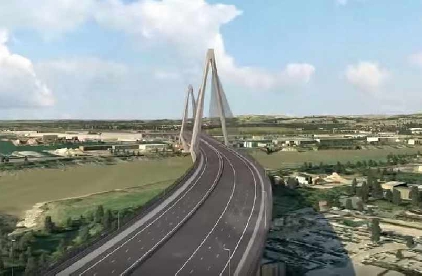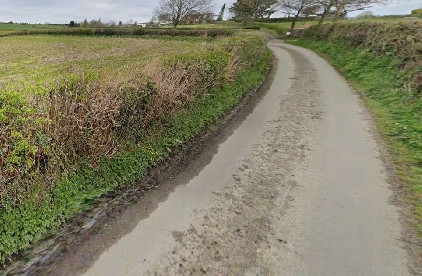
It could take up to 2050 for Shrewsbury’s controversial North West Relief Road (NWRR) to become carbon neutral.
That is what Shropshire Council is saying ahead of a Northern Planning Committee meeting on Tuesday (January 21).
The latest methods for estimating the impact of the project have seen the expected carbon cost more than double – from 26,711 tonnes of carbon to 55,904. Because of this, the council is saying offsetting the scheme’s impact by 2030 is now “considered impossible”, and is asking for a condition to be revised so that it now has until 2050 to achieve the feat.
“The updated Carbon Assessment Plan sets out a plan to achieve this, and in line with best practice, the measures locally will be prioritised wherever possible,” said case officer, Mike Davies.
“However, this increased flexibility in the wording would also allow the applicant to source carbon credits from further afield which potentially will result in expenditure not only outside of the county, but outside of the UK on potentially less reliable carbon offsets.
“Therefore, it is critical that a hierarchy of local, regional, country and international offsets is put in place and every effort made by the applicant to prioritise delivery of offsets on this basis, as opposed to sourcing cheaper offsets abroad which are less reliable and more difficult to monitor.”
Shropshire Council has committed to be carbon neutral by 2030. However, the report says that by that year, it will have identified and committed to sufficient measures needed to offset the scheme’s carbon impact.
“The process adopted will ensure the scheme’s impact is offset by 2050 at the latest,” said Mr Davies.
“It is therefore important to flag up that this raises a conflict between the council’s stated objective of being carbon neutral by 2030 and the applicant’s goal of offsetting the impact of the scheme by 2050. It is considered that this is a material consideration that needs to be considered.”
According to the council, the NWRR is the missing link in Shrewsbury’s transport network, and is designed to address traffic congestion, complement the Shrewsbury Moves strategy, and open up new opportunities for businesses.
Planning permission was granted on October 31, 2023, subject to an agreement of section 106 contributions and the satisfactory discharge of conditions. A total of 62 conditions were considered and approved in draft at a planning committee on February 15, 2024.
However, the project has been met with various delays. As well as the increase in carbon emissions, the cost to build the road is now estimated to be £171m – over double the projected £87.1m that was reported in 2019.
An external audit report also criticised Shropshire Council’s handling of the scheme, saying it was relying too much on a promise from the previous Conservative government to fully fund it, which the new Labour government has thrown into doubt by putting it under review.

 New homes for old bus depot
New homes for old bus depot
 MP graduates from Armed Forces Parliamentary Scheme
MP graduates from Armed Forces Parliamentary Scheme
 Tom Grennan to perform at Ludlow Castle
Tom Grennan to perform at Ludlow Castle
 Revealed: The main roads in Herefordshire prioritised for repairs
Revealed: The main roads in Herefordshire prioritised for repairs
 Villagers fustrated over lack of road repairs
Villagers fustrated over lack of road repairs
 New Food and Drink group launched at online event
New Food and Drink group launched at online event
